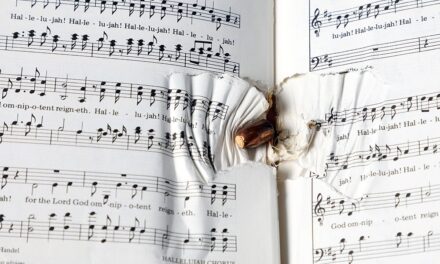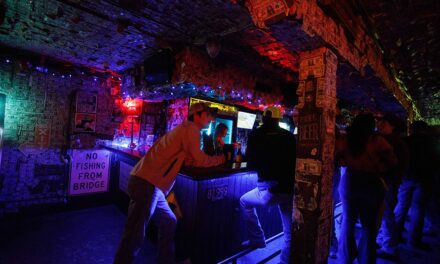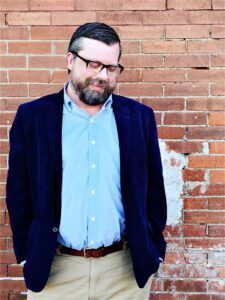

Originally published October 3, 2002
Text:
Some of the students are crying — and they’re not even in trouble.
More than 1,800 elementary school students from around the Metroplex have gathered this day at Bass Performance Hall to see an afternoon performance of The Velveteen Rabbit. As the actor dressed as the whimsical bunny rolls around Bass Hall’s stage, cavorting and acting silly, the children laugh. During the play’s more melancholy moments, some of the students openly sob.
And somewhere in the shadows, while students are wiping away tears, Sue Burattois smiling. She has, after all, done her job.
“This is what we strive for,” says Buratto, Bass Hall’s education director. “To move these students to joy or tears through the arts.”
Since Bass Hall opened in 1998, its staff, local teachers and national performers have been doing just that through the Children’s Education Program of Performing Arts Fort Worth at Bass Performance Hall, a program for area students designed to expose them to various factions of the performing arts, including theater, ballet and classical music.
Celebrating its fifth season this year, the program boasts 56 presentations for 2002, varying from dance performances such as The Velveteen Rabbit to “master classes,” in which students take part in one-on-one interactive workshops.
To coincide with her Oct. 16 appearance at Bass Hall, pianist Olga Kern, co-gold medalist of the 2001 Cliburn competition, will take part in a workshop for fifth-grade students. The Fort Worth Opera, the cast and crew of West Side Story and the Cashore Marionettes will also participate in the program before year’s end.
Some of the biggest artists who’ve played the hall have taken part in programs for schoolchildren, including jazz great Wynton Marsalis and world-class violinist Midori.
“I believe in outreach,” said Midori, who was herself a teen prodigy, in an e-mail interview. “It is a great way to stay connected and to participate in life.”
The programs have also become so popular with students and teachers that they’ve become a standard part of the curriculum for elementary schools in Fort Worth, both public and private.
“Every student in elementary school in Fort Worth comes to a performance,” Buratto says. “After elementary levels, it’s up to the teachers to say, ‘I think my seventh-graders should hear a symphony or my ninth-graders should see Shakespeare.’ “
Proving the program’s popularity, at least half of the events are, in fact, for middle or high school students.
“The high school students are sometimes the ones that get the most excited,” Buratto says. “We’ve had high school kids listening to the symphony and, at the end of it, stand up and cheer. No one was more surprised than me when that happened.”
It is the elementary school students who benefit the most from the program, says one of its founders, Pat Schutts. “You should see their eyes light up the first time they walk into Bass Hall,” she says.
Sure enough, on the day of The Velveteen Rabbit program, young students let out “oooh’s” and “aahhh’s” when they walked into the hall. For many, it was their first trip to the hall.
“Some of these students haven’t even seen escalators,” Schutts says. “So you can imagine their reaction to a building as prestigious as Bass Hall.”
Schutts says the program grew out of a need to incorporate more elements of the arts into everyday curriculum. Schutts, the development director of Performing Arts Fort Worth, says this is a crucial time for exposing students to the arts community, since art and music programs at schools are dwindling.
“Look at our art museums, look at our symphonies and orchestras, and look at our theater organizations — we are a performing-arts community,” says Schutts, who masterminded the program with Trinity Valley School founder Stephen Seleny. “It’s just incomprehensible to me that our children are being educated without that component. However we can fit into that premise, however we can expose students to everything this community offers in the way of the arts, is what we want to do.”
It is, Schutts says, sometimes difficult, at least financially. Funds must be raised for the programs, which carry a somewhat hefty price tag.
“It averages out to about $12,500 a program,” she says, adding that Bass Hall is financially independent of the program and that the room must be rented for the events. “Some are cheaper, some are more expensive. But these are the same shows that they perform for paying audiences. The students who see the Fort Worth Symphony perform are seeing the exact same show a paying audience sees, and the same with the plays, the opera, Wynton. They’re seeing high-quality shows, and a lot of these students have never experienced something like this before, let alone been to Bass Hall.”
Raising these funds is Schutts’ main job. She says the money comes from a variety of organizations that have embraced the program.
“They’re funded by the generosity of individuals and corporations and foundations throughout the Fort Worth community, and some of the surrounding areas,” she says, naming the Walton Foundation as one such contributor. “But it takes a lot of money and ongoing support.”
Judy Ray has given both to the program. A music teacher at Wood Elementary in Arlington, Ray says her students enjoy and learn so much from the programs that last year they scraped together quite a chunk of change for it.
“We raised $1,500 for the program last year,” she says. “We had a drive called ‘coins for concerts.’ Kids emptied their piggy banks to go, they just love it so much.” AmeriCredit Corp. in Arlington gave the school a grant so students could attend a symphony program this year.
“They were blown away,” Ray says. “You just can’t duplicate the power of that kind of live music in the classroom. The big discussion on the bus ride home was, ‘Which movement did you like best?’ Here are my sixth-graders arguing over which movement was the best. I thought I was in The Twilight Zone. How many of them would have ever heard a symphony if we hadn’t gone? That opened a whole new door to them.”
Buratto says she hopes that more will be opened.
“When I was growing up, children took dance and piano. They don’t have those experiences in a lot of our schools anymore,” she says. “I think it’s important that they do — it’s something to broaden their horizons. A lot of times, we do get criticized. People say, ‘Why don’t you have the symphony play rock or rap or something the kids know?’ But having the symphony play something that’s not their forte is a wasted effort. Kids have all those things. They are inundated with pop culture, but not with what we offer. That’s why we hope this lasts — they need those experiences, if only to decide if they like them or not.”











